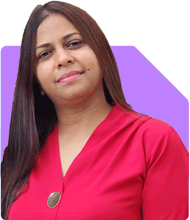Ramalingam Kalirajan |2479 Answers |Ask -Follow
Mutual Funds, Financial Planning Expert - Answered on May 04, 2024
He has an MBA in finance from the University of Madras and is a certified financial planner.
He is the director and chief financial planner at Holistic Investment, a Chennai-based firm that offers financial planning and wealth management advice.... more

My age is 51. I have passive source of income. Own house & realestate investment. Now i start investment in mutualfunds. By lumpsum.. what is best strategy for me
Allocate more towards debt funds for stability, considering your age and passive income sources.
Regularly review and rebalance your portfolio to ensure it aligns with your financial goals and risk tolerance.
Consider your overall financial situation, including passive income and real estate investments, when making investment decisions.
Stay disciplined and patient, allowing time for your investments to grow and generate returns.
Consult a Certified Financial Planner for personalized advice tailored to your specific needs and goals.
You may like to see similar questions and answers below
Omkeshwar Singh | Answer |Ask -Follow
Head, Rank MF - Answered on Apr 25, 2022
Tejas Chokshi |126 Answers |Ask -Follow
Tax Expert - Answered on Jun 12, 2023
Ramalingam Kalirajan |2479 Answers |Ask -Follow
Mutual Funds, Financial Planning Expert - Answered on Apr 04, 2024
Ramalingam Kalirajan |2479 Answers |Ask -Follow
Mutual Funds, Financial Planning Expert - Answered on Apr 27, 2024
Ulhas Joshi |255 Answers |Ask -Follow
Mutual Fund Expert - Answered on Feb 27, 2024
Ramalingam Kalirajan |2479 Answers |Ask -Follow
Mutual Funds, Financial Planning Expert - Answered on May 18, 2024
Ramalingam Kalirajan |2479 Answers |Ask -Follow
Mutual Funds, Financial Planning Expert - Answered on May 18, 2024
Ramalingam Kalirajan |2479 Answers |Ask -Follow
Mutual Funds, Financial Planning Expert - Answered on May 18, 2024
Maxim Emmanuel |215 Answers |Ask -Follow
Soft Skills Trainer - Answered on May 18, 2024
Maxim Emmanuel |215 Answers |Ask -Follow
Soft Skills Trainer - Answered on May 18, 2024
Maxim Emmanuel |215 Answers |Ask -Follow
Soft Skills Trainer - Answered on May 18, 2024
Maxim Emmanuel |215 Answers |Ask -Follow
Soft Skills Trainer - Answered on May 18, 2024
Nidhi Gupta |149 Answers |Ask -Follow
Physiotherapist - Answered on May 17, 2024
Nidhi Gupta |149 Answers |Ask -Follow
Physiotherapist - Answered on May 17, 2024
Nidhi Gupta |149 Answers |Ask -Follow
Physiotherapist - Answered on May 17, 2024

















.jpg)







